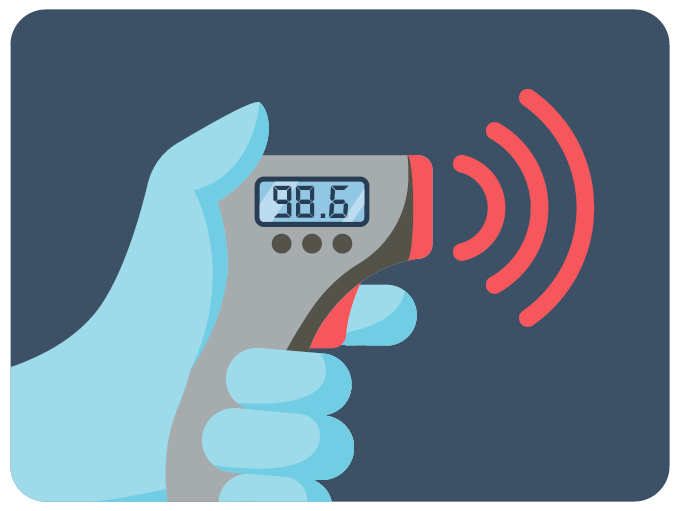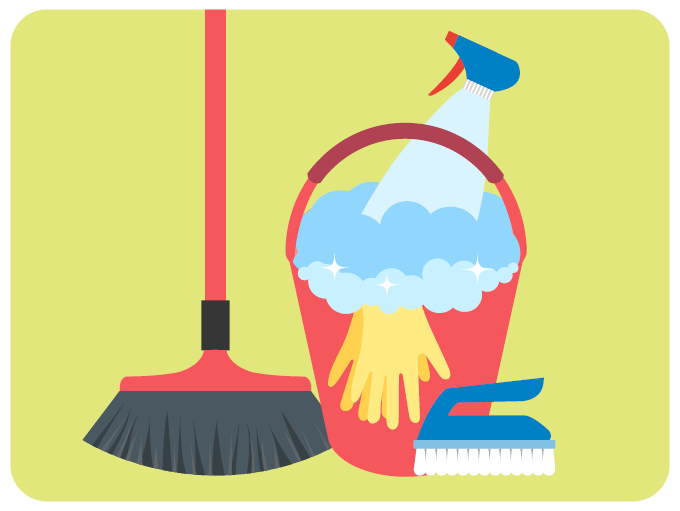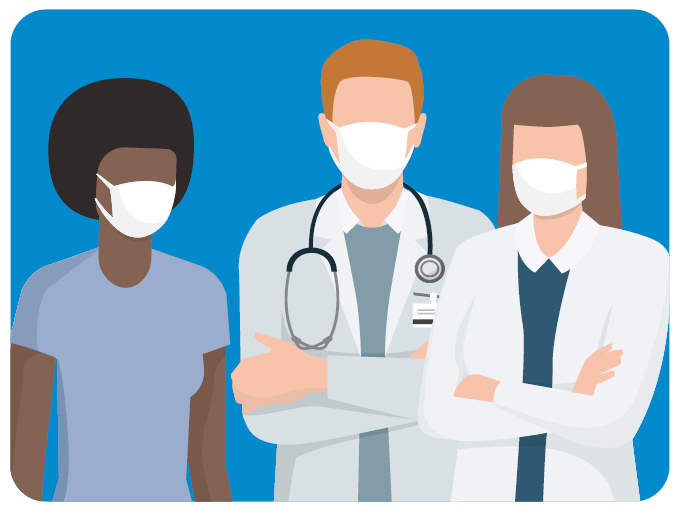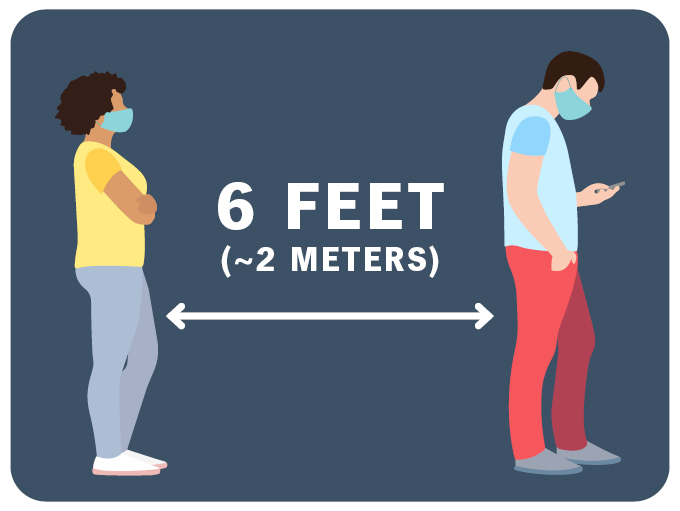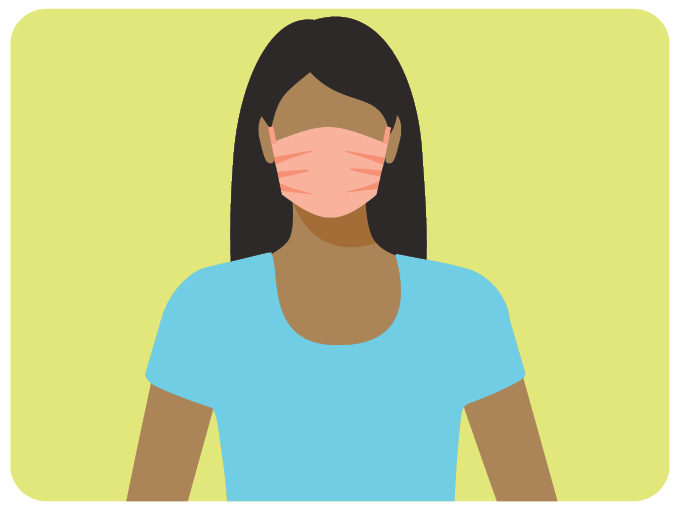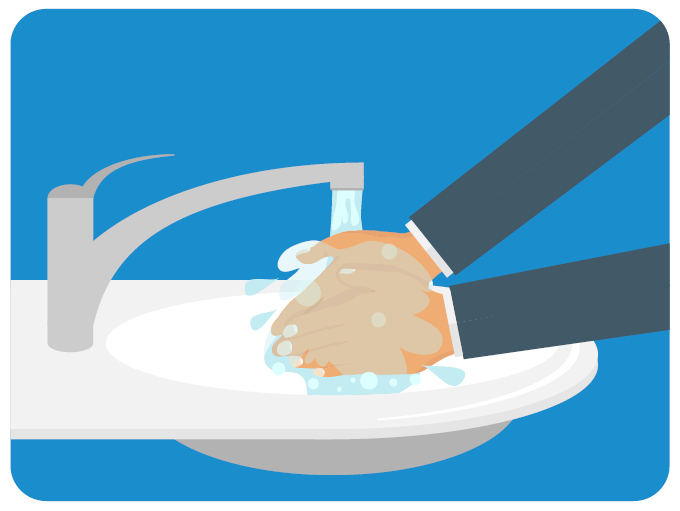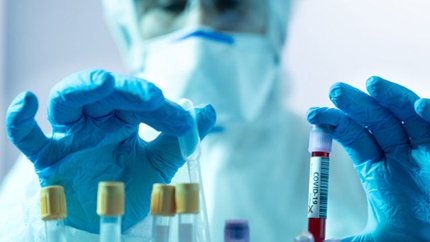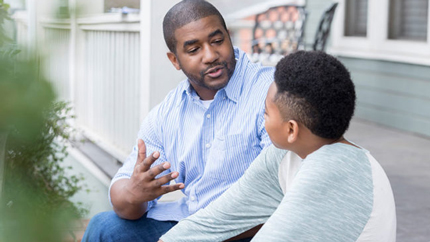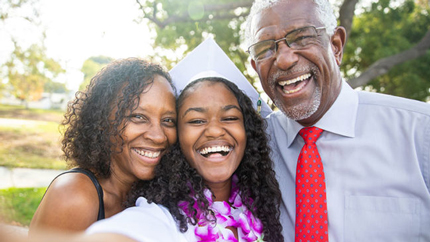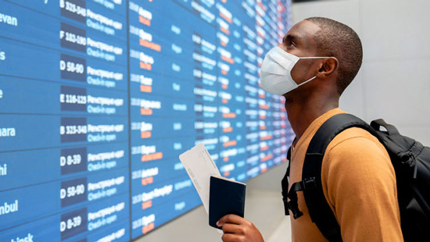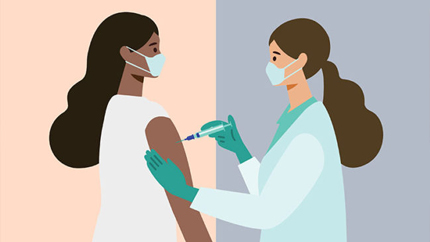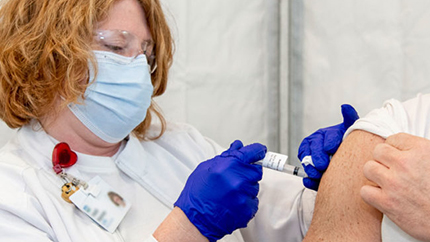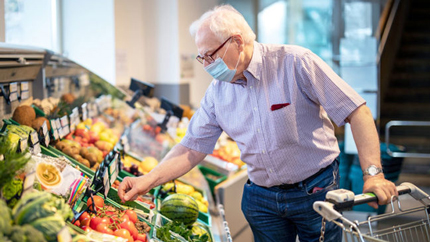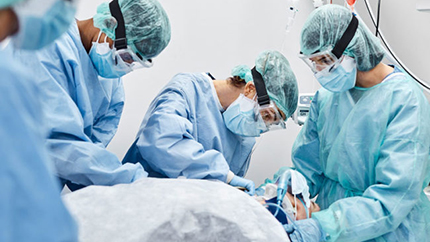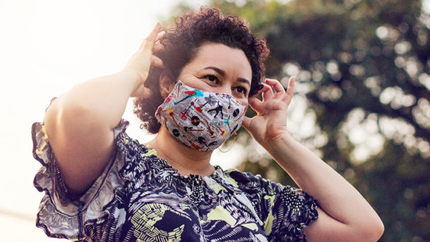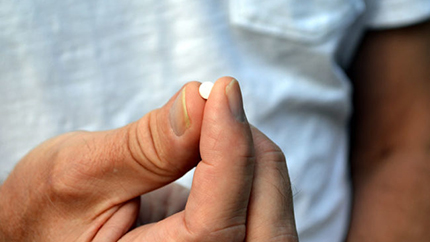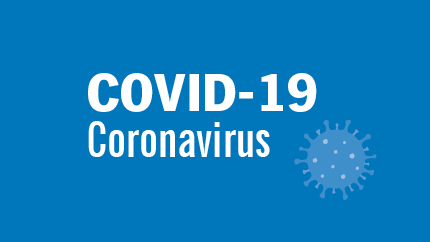COVID-19: Our Commitment to Safe Care
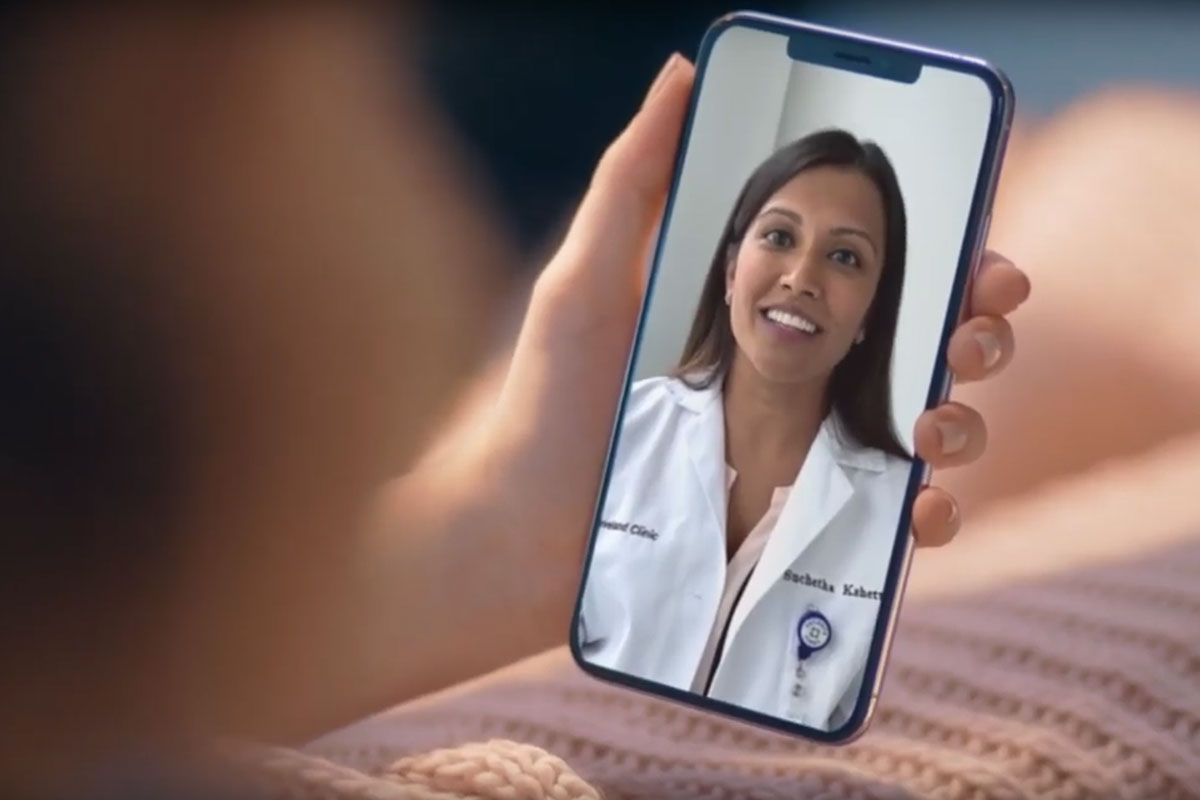
Do You Think You May Have COVID-19 — or Been in Contact With Someone Who Does?
If you need a COVID-19 test, there are a lot of options available to you at Cleveland Clinic locations and throughout your community. But please DON’T visit the emergency room for mild COVID-19 symptoms or to get a test.
If you have chest pain, shortness of breath, dizziness, a severe headache or other potentially life-threatening problems, go to the nearest emergency department or call 911.
How do I get tested for COVID-19?
- Schedule an appointment online for testing at a Cleveland Clinic location: If you have a Cleveland Clinic primary care provider and are experiencing non-urgent COVID-19 symptoms, you can schedule a testing appointment online in MyChart. If you do NOT have a Cleveland Clinic primary care provider and are experiencing non-urgent COVID-19 symptoms, please schedule an online virtual visit to see a provider who can order a test.
- Visit a community testing center near you: Whether you're looking for walk-in, drive-thru or appointment-based testing, there are a variety of options. The Ohio Department of Health website and the Florida Department of Health’s COVID-19 website feature maps of testing locations throughout both states. Questions? Call the Ohio Department of Health's 24/7 hotline at 833.427.5634 (833.4.ASK.ODH) or the Florida Department of Health's 24/7 hotline at 866.779.6121.
- Pick up a self-testing kit in your community: Rapid home tests are often available free of charge at many local libraries or community health centers. They're also for sale at most retail pharmacies. If you have symptoms, consider calling ahead to see if no-contact pickup is available.
FAQs

How can I best protect myself while getting back to normal?
Getting vaccinated against COVID-19 is the best way to protect yourself from getting seriously ill from the virus. As variants — like the delta variant — emerge, we must also continue taking other important precautions that slow the spread of COVID-19. This may include:
- Wearing a face mask to protect yourself and others when you’re out in public.
- Practicing social distancing. Maintain a 6-foot distance from other people and avoid crowds.
- Washing your hands frequently with soap and water for at least 15-20 seconds. If soap and water aren’t available, use hand sanitizer with at least 60% alcohol.
- Avoid touching your eyes, nose and mouth with unwashed hands.
- Staying home when you are sick.
- Covering your cough or sneeze with a tissue. Throw it in the trash when you’re done.
Where can I receive monoclonal antibody therapy for COVID-19?
In Ohio: Cleveland Clinic provides monoclonal antibody infusions and oral antivirals for treating mild to moderate COVID-19 in certain patients who have a high risk for severe illness.
- Monoclonal antibody infusions are available on a limited basis to Cleveland Clinic patients. Contact your primary care physician or specialist to find out if you are able to get an infusion.
- Oral antivirals are provided by state health departments to us on a limited basis. Your physician will tell you if you’re a candidate for oral antivirals based on your risk factors.
Our emergency departments don’t provide COVID-19 therapies, including monoclonal antibody infusions and prescriptions for oral therapies. For a list of locations throughout Ohio where you can get monoclonal antibodies, visit the Health & Human Services website.
In Florida: Those 12 years and older who are high risk, or who have contracted or been exposed to COVID-19, are eligible for monoclonal antibody treatment at several Cleveland Clinic locations in Florida. Contact your Cleveland Clinic primary care physician or specialist to find out you are a candidate for an infusion. To find additional monoclonal antibody infusion locations in Florida, visit the Florida Department of Health’s website.
Appointments & Access
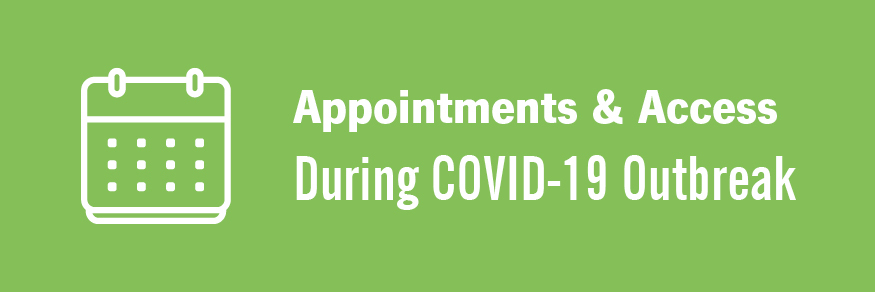
What are Cleveland Clinic’s mask guidelines?
As a healthcare system, we require that caregivers, patients and visitors wear face masks in our facilities at all times. For everyone’s safety, your mask should have multiple layers, fit snugly, and cover your nose, mouth and chin. We understand that having different guidelines at various places you go may be confusing, but we touch patients when they are most vulnerable. They trust us to keep them safe and we thank you for also doing your part.
This means that face masks are required for patients at all routine appointments and procedures (without a hospital stay), Emergency Department patients and for permitted visitors, even if they received a COVID-19 vaccine. Face masks are strongly encouraged for patients admitted to the hospital, even if they’ve received a COVID-19 vaccine. Exceptions will be made if they have a health or behavioral condition that prevents them from wearing one.
I have a loved one currently hospitalized with COVID-19 at a Cleveland Clinic location. How can I get an update on their condition?
We know having a loved one in the hospital is stressful for you and your family — and it can be made worse by the COVID-19 precautions in place to limit the spread of the pandemic. But please be assured that caring for our patients is our top priority.
Our teams offer daily Plan of Care visits. We try our best to include your family in these discussions (by phone or virtual meetings) so you're aware of next steps. We also know that sometimes we can't connect at that time. Or you may have questions at other times during the day and call the unit that's caring for your loved one.
During these unprecedented times, our commitment to the highest-quality patient care may cause a delay in some of our communications. If you call the unit and aren't able to be immediately connected with a provider, this may simply be because they are currently caring for a patient. Our caregivers will make sure you are updated at the next Plan of Care visit, if not sooner.
Here are some ways to help make the most of these update calls, so that you receive the information that's most important to you:
- You and your family should identify a single point of contact for our providers to call. It's best if this person is the legally-authorized representative (able to make decisions for your loved one if they are unable).
- Have this designated person make sure that everyone in your family learns about any important updates.
- Keep a list of important questions so you can make sure nothing is forgotten during the call.
Read our tips for communicating with a loved one while they are in the hospital.
Please understand that our expert providers are caring for many patients at the same time. While they may not be available at the exact time you call, we know how important it is to keep you updated. If you're not hearing from your loved one’s providers at least once a day, you can reach out to the Ombudsman Office and they can offer assistance at 216.444.2544.
Hearing directly from your loved one when they're able is also important. Besides calling on the bedside hospital phone, we also have instructions for video connection via AmWellNow, Google Hangouts, Facetime and Skype, if they have a personal device. If they don't have a personal device, we can help them schedule a time for a video call using one of our devices. Making sure hospitalized patients connect with loved ones is important for creating a healing environment.
We also have highly trained and compassionate spiritual care professionals available — not just to patients, but also to you during this stressful time. Our chaplains can help you feel connected and can be reached by calling 216.444.2518.
Thank you for your patience and understanding as we all work toward improving the health and well-being of all of our patients during this pandemic.
I have an appointment at Cleveland Clinic. What do I need to bring?
Please bring your appointment reminder with you (email, MyChart or text message). When you enter a building, please review the signs displaying our COVID-19 safety guidelines. Masks and hand sanitizer are available at patient entrances.
For a routine appointment or procedure (without a hospital stay), and Emergency Department visits, patients and visitors are required to wear a mask while inside our buildings, even if they’ve received a COVID-19 vaccine. Exceptions will be made if they have a health or behavioral condition that prevents them from wearing one. Patients admitted to the hospital are strongly encouraged to wear a mask while inside our Ohio and Florida facilities, even if they’ve received a COVID-19 vaccine. Masks from home may be worn, or masks will be provided at entrances.
Visitor Guidelines
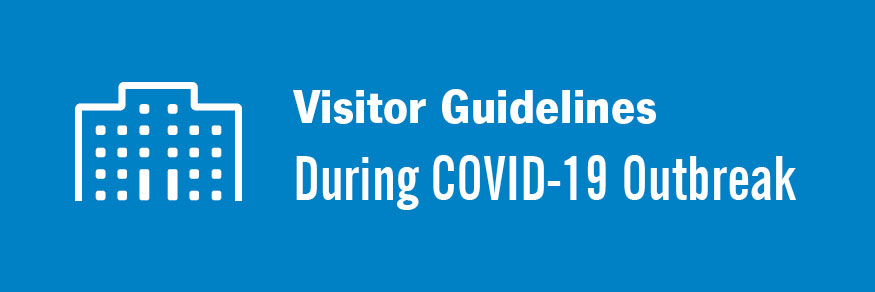
We know you want to be with your loved ones while they are in the hospital. Visitors are important to the healing and wellbeing of our patients, and we’re happy to welcome you to Cleveland Clinic. As COVID-19 cases remain steady in our communities, we are updating our visitation guidelines to allow more people to visit their loved ones.
Before you arrive
- Visitation hours in Ohio and Florida remain 7 a.m. to 9 p.m. each day.
- Please wear a mask to the hospital. You need to wear a mask that loops over your ears and covers your mouth and nose even if you’re fully vaccinated.
- Sanitize your hands upon entering the facility.
- If you have COVID-19 symptoms (including fever, chills, cough, shortness of breath, difficulty breathing, vomiting, diarrhea, new loss of taste or smell, and muscle or body aches), please stay home.
If you have tested positive for COVID-19 or you have been exposed to someone who tested positive for COVID-19, you can visit a patient at least 10 days after testing positive or being exposed.
Visiting a patient
Visitor guidelines for adults who are staying in the hospital (whether COVID-19 positive or COVID-19 negative):
- Patients can have two visitors at a time.
- Children are now again allowed as visitors.
- Visitors must check in and out with our staff.
Visiting a COVID-positive patient
If you have a loved one in the hospital as a COVID-positive patient, you will be asked to take extra precautions including wearing a mask, goggles, gown and gloves.
Visitor guidelines for other Cleveland Clinic locations
- Cleveland Clinic Canada
- Cleveland Clinic London
- Cleveland Clinic Nevada
- Cleveland Clinic Rehabilitation Hospitals
Testing
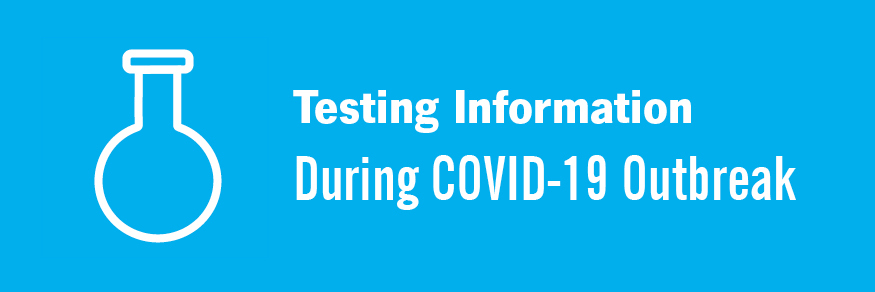
How do I get tested for COVID-19?
Whether you are experiencing symptoms of COVID-19 or not, we offer a variety of ways for you to get tested at multiple COVID-19 testing locations:
If your COVID-19 symptoms are severe, the emergency department is available 24/7 for patients who require immediate care.
I have a surgery or procedure scheduled. Do I need a COVID-19 test before my appointment?
Because we have seen a dramatic drop in COVID-19 cases and positivity rates, we are no longer requiring COVID-19 testing for patients who will be going home on the same day as their surgery or procedure.
If you will be staying in the hospital before or after your surgery or procedure, your healthcare provider will order a COVID-19 test for you.
How do I get a COVID-19 test before my surgery or procedure?
When your surgery or procedure is scheduled, a COVID-19 test will also be ordered by your doctor’s office. The SelfCheck™ COVID-19 Swabbing Kit is the preferred method for pre-surgical testing.
We have several testing locations throughout Northeast Ohio. An appointment for the COVID-19 test will be scheduled at a location and time most convenient for you.
Can I get a COVID-19 test a non-Cleveland Clinic location for my surgery or procedure?
Yes, outside testing is accepted but all patients must have written documentation of their test and results that adhere to the three-day, or 72-hour, testing window.
How long will results from a COVID-19 test take?
On average, results are available within two to three days. After testing, you should remain at home until your surgery or procedure to avoid any exposure to COVID-19. If you receive testing at a Cleveland Clinic location, your results will be available in your MyChart account.
How much does a COVID-19 test cost?
Costs can vary depending on what type of COVID-19 test you get. You can find a list of the tests we offer and how much they cost here. Please check with your insurance company to find out any out-of-pocket costs for your COVID-19 test.
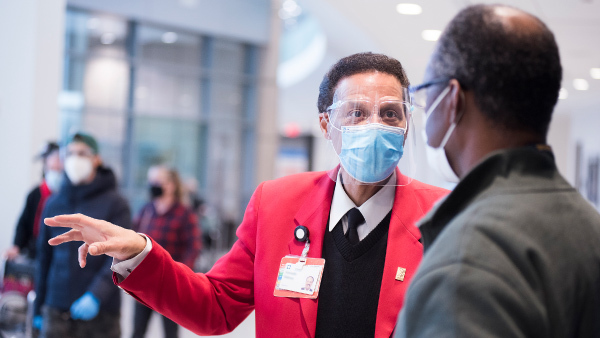
The safety of our patients and caregivers remains our top priority.
While the virus is still circulating, we’ve come together as a community in unique ways through the pandemic. As we move forward, Cleveland Clinic is committed to vaccinating our communities and providing the best and safest care.
Below, you can learn about some of the ongoing steps we have taken to increase safety — and a few changes we’ve put in place to keep Cleveland Clinic a safe place for our patients, visitors and caregivers.
Please remember that we continue to limit visitation at our facilities.
